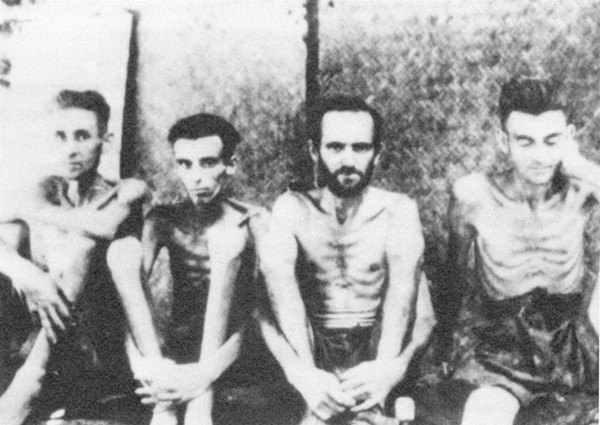 |
|
Historical photo in the book series Death on the Hellships: Japanese War Crimes in the Far East (1942-1945)[Photo provided to China Daily] |
"It also inspired Chinese scholars to look outside and expand their range of sources when studying China's role in fighting the Japanese invasion in WWII."
The Chinese version of Crager's title is one of a four-book series called Death on the Hellships: Japanese War Crimes in the Far East (1942-1945), launched by Alpha Books under the Chongqing Publishing Group, "in an attempt to look beyond the boundaries and fill the gaps in academic studies", says Chen Xingwu, the group's head.
Fan Guoping, head of the translators' team, tells China Daily that this is the first time that such a set of books on the topic has been published on such scale.
Zhang Xianwen, professor at Nanjing University and the collection's academic counselor, believes that previous research at home is too confined to the Chinese angle and little has been done in academic fields on Japanese war crimes outside China, especially in the Far East.
"The four books offer a solid link of evidence and give a whole new global perspective to our studies," he says.
Zhang Xianwen also says that the collection echoes President Xi Jinping's remarks during the 25th collective study of the Political Bureau of the CPC Central Committee on July 30. Xi said that we should "collect historic evidence for the War of Resistance Against Japanese Aggression from a global perspective".
In Death on the Hellships: Prisoner at Sea in the Pacific War by US naval history expert Gregory F Michno, the author chronicles the desperation of American and British POWs when they were transported as ship cargo to different Japanese camps.
In 1942 alone, 140,000 POWs were transported by the Japanese, packed in enclosed spaces full of depression and human excrement.
Michno cites American Bob Haney, who survived the nightmare from the Nagato Maru journey. Haney says he has tried to blank out memories of the journey in the past 40 years, but they haunt his dreams; the experience changed his impression of Japanese culture once and for all.